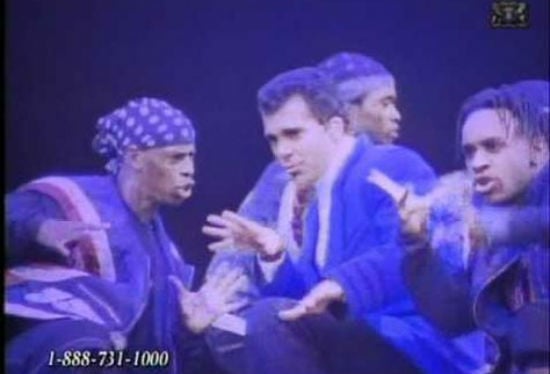Shortly after I picked up the first book in the Left Behind series, but before I’d started writing about it, I wrote a post about the otherworldly strain of escapism in American Christianity. That otherworldliness, I argued, derives from the untenable history of trying to belong to a church that included both slaves and slaveowners.
I titled that post “In the sweet by and by,” enlisting the name of an old Southern Gospel hymn that embodied that otherworldly outlook. I remember thinking that “I’ll Fly Away” might have been a better title for that post, but I didn’t want to use that because I really like “I’ll Fly Away.” I like hearing it and I like singing it. Albert E. Brumley’s old song works as a Gospel song, as a country song, a Dixieland song, a bluegrass song … I just think it’s a great old American tune.
But the theology of it has always bugged me. Richard Beck describes precisely what bothers me about its dismissal of this world and exclusive focus on the next:
Where is the whole “may your will be done on earth as it is in heaven”? Where is the vision of the New Jerusalem coming down from heaven to earth in Revelation 21-22? It does seem like “I’ll Fly Away” is pointing us away from this world in anticipation of the next. The song suggests that the whole goal and aim of the Christian life is to “fly away” from this world to the next.
Exactly. Love should never point us away from this world.
But Beck learned to appreciate this old song in a new way when he realized it was a favorite in the Bible study he helps lead at a nearby prison.
The song sounds completely different in prison. Just like the Bible.
Because here’s the deal, does “I’ll Fly Away” make any sense when it’s sung by rich people of power and privilege? I mean, what the heck are you flying away from? Life in suburbia? The Caramel Macchiatos at Starbucks? The vacations at the beach? The fact that you have clean water, indoor plumbing, central heating/air, and two cars?
But when “I’ll Fly Away” is sung by people who are, quite literally, imprisoned or oppressed, then the song is less about flying off to the Pearly Gates than a commentary about the world around us. “I’ll Fly Away” can be an indictment and lament about the status quo. There is a prophetic aspect to “I’ll Fly Away” that privileged people generally miss. Having never suffered slavery, oppression or imprisonment we can’t hear the lament in “I’ll Fly Away.” So of course when the privileged sing the song it sounds theologically shallow. The privileged shouldn’t be trying to fly away. They should be worrying about the injustices at the gate.
Southern Gospel, like many spirituals, conveys an otherworldly, escapist theology — but it’s also “escapist” in a far more literal sense. The two kinds of escapism arise from the same context, but from opposite sides of it, and they point in opposite directions.
Anyway, just because we can, here are 18 renditions of “I’ll Fly Away.”
Alison Krauss & Gillian Welch; Etta James; The Avett Brothers; Bruce Springsteen; Johnny Cash, June Carter, the Carter Family, the Statler Brothers & Carl Perkins; Kanye West; Hank Williams; Mississippi John Hurt; Blind Boys of Alabama with the Hot 8 Brass Band; Bill Monroe and Ralph Stanley; Willie Nelson & Friends; Emmylou Harris & The Oak Ridge Boys; Randy Travis; Dolly Parton & Nell Carter; Loretta Lynn; Jars of Clay; Al Green.












